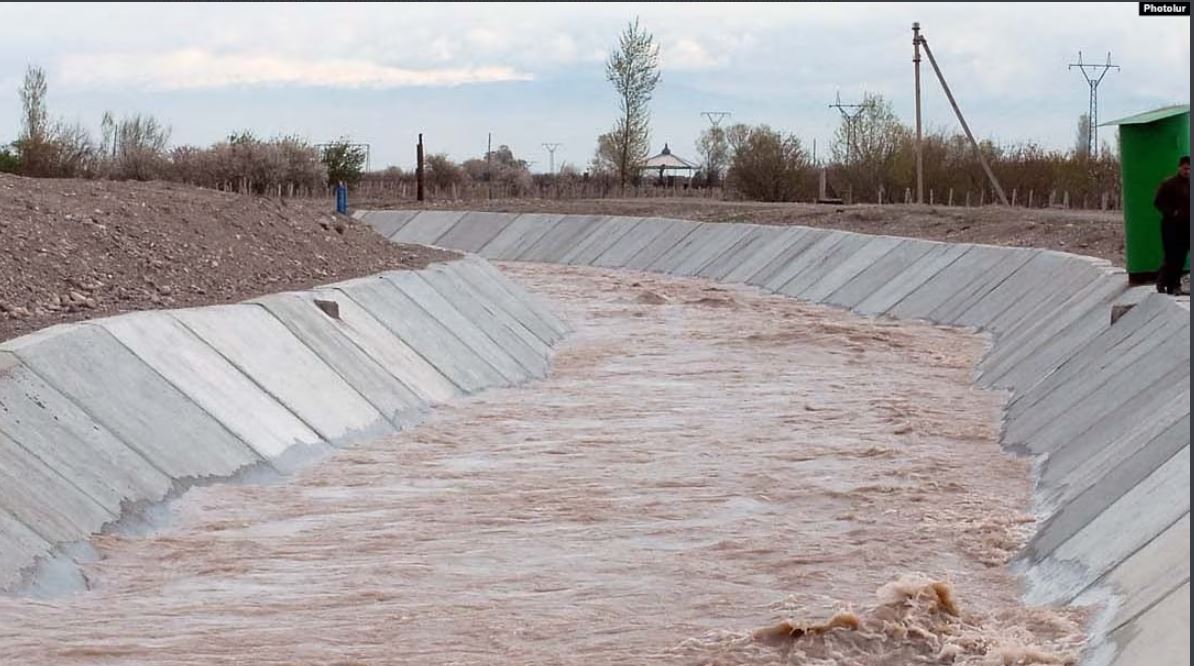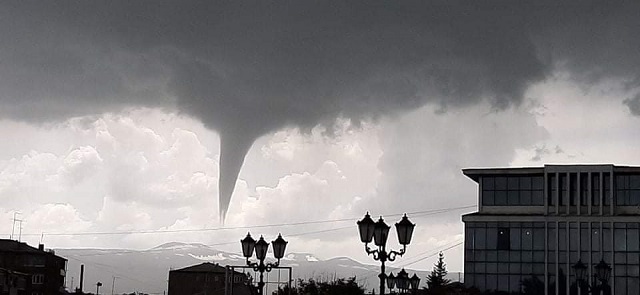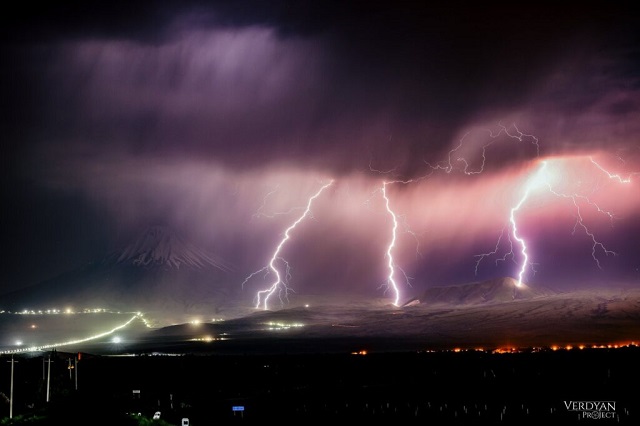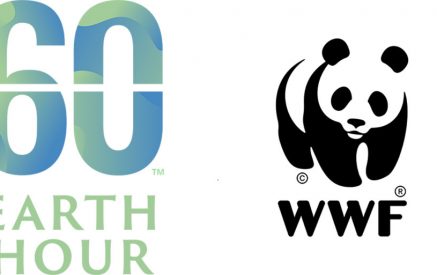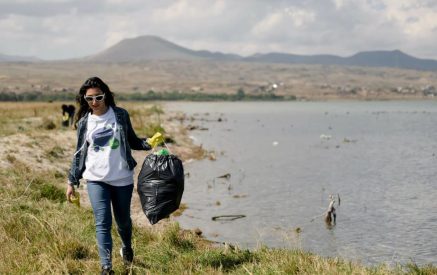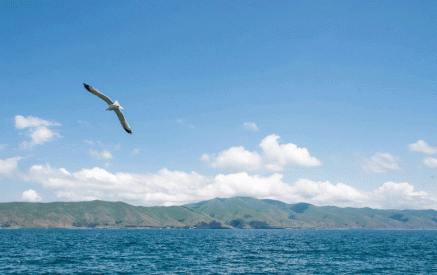Water levels in Armenia’s irrigation reservoirs vital for domestic agriculture fell significantly in 2023 amid record high temperatures reflecting global climate change, according to weather officials.
Much of the water stored there comes from rivers fed by snowmelt in surrounding mountains. The amount of snowfall in the country has steadily decreased in the past decade due to warming weather, said Levon Azizian, the head of the Armenian government’s Center for Hydrometeorology and Monitoring.
“Less snow is now accumulated in mountainous regions,” Azizian told a yearend news conference in Yerevan. “In some mountainous regions, precipitation takes the form of rain.”
Azizian referred to parts of the country situated at 1,700 meters above the sea level and higher. “We should have had snow cover there today, but we don’t,” he said, adding that this is having a “negative impact on our water resources.”
Read also
Azizian’s deputy Gagik Surenian pointed out that winters in Armenia have been “anomalously warm” since 2017 and that last month was the warmest December on record.
“Air temperature has been 2-3 degrees [Celsius] above normal,” said Surenian. “In December this year, it was 5-6 degrees above normal.”
In his words, the South Caucasus country is not only being affected by climate change but is going through a cycle of warmer-than-usual weather which typically lasts for seven or eight years.
“As of now, we have not registered any dangerous indicators that could affect our agriculture,” said Surenian.
The official argued that higher temperatures make up for the lack of snow that protects winter wheat against frost. But he noted that they also increase the risk of hailstorms that regularly destroy apricots and other major summer crops.
The agricultural sector could be hit much harder by a lack of irrigation water. The artificial reservoirs mostly built in Soviet times irrigate a large part of Armenia’s arable land.
Azizian said that their water level fell by an average of about 35 percent in the course of 2023, forcing authorities to take more water from Lake Sevan, the country’s largest natural reservoir critical for its ecosystem. The vast lake’s own level fell by 11 centimeters as a result, added the official.
The Hrazdan river flowing out of Sevan has for decades supplied irrigation water to the fruit-growing Ararat Valley south and west of Yerevan through a network of Soviet-era canals. This was a key reason for the lake’s drastic shrinkage that had begun in the 1950s and was partly reversed in the 2000s.



















































